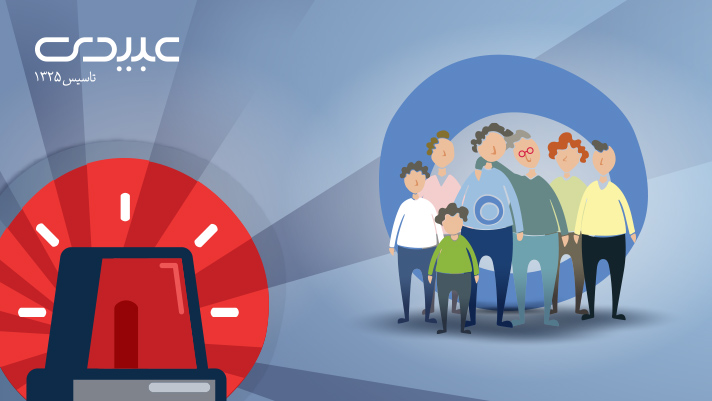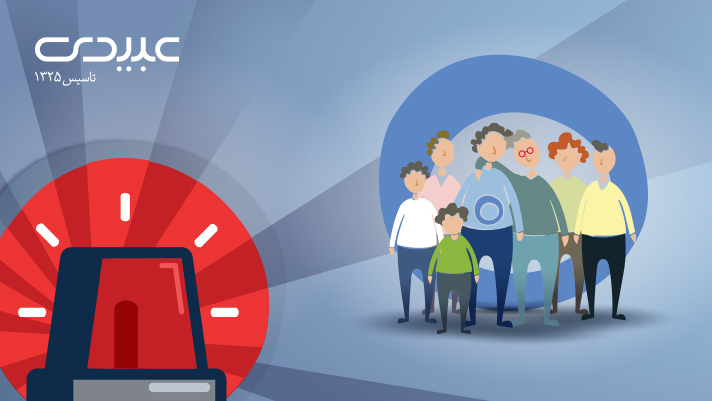
18 Misconceptions about Diabetes
Diabetes is a common and non-contagious disease many people do not know much about. According to the latest World Health Organization statistics, 2 persons are affected by the disease in every 10 seconds. In this respect Dr. Abidi pharmaceutical company launched a campaign on the occasion of the World Diabetes Week in order to raise public awareness concerning the common misconceptions about diabetes. The campaign focused on 18 false beliefs about diabetes. The design and implementation of this campaign on social networks was carried out by Eshareh Advertising Agency.
About this campaign, we interviewed Rosa Abdollahi, an expert on diabetes in Abidi pharmaceutical company and the “Design and Implementation Team of the Campaign from Eshareh Advertising Agency (Miad Dehqani, Kamyar Zolfaghari, and Babak Jamshidi).
Q: What prompted Dr. Abidi Pharmaceutical Company to correct misconceptions about diabetes?
Abdollahi: There are many beliefs spread in the society about diabetes that can exacerbate the disease. With the aim of improving the health of the community, Abidi Pharmaceutical Company has been working to inform the people about diabetes, prevent them from being affected and help those affected to improve their condition.
Q: Why use digital media to get information about these false beliefs?
Abdollahi: Because more and more people are using the digital media today, and access to a wide range of target audiences is possible in the shortest possible time through these media.
Q: What has been the feedback of the audience on the designed infographics?
Abdollahi: The impact infographics will have on the audience at first glance may have been even more important than the published scientific content because it encourages the audience to pay more attention to the content. The “topic-related” and “creative” designs of the Eshareh Advertising Agency about the campaign of misconceptions about diabetes has definitely doubled the impact of the issue. Meanwhile, this satisfaction has been expressed over and over again through partners, friends, and followers of Abidi page and ….
Q: What other promotional tools did you use in addition to infographics?
Abdollahi: A questionnaire on misconceptions about diabetes, based on multiple beliefs, was selected from among all ideas, and was filled in the form of a contest for the employees of the company. The use of Influencers in the cyberspace, CPC, Preroll and … were among the other tools used in this campaign.
Q: What are the benefits of using CPCs and CPC ads to post more campaign messages?
Abdollahi: The use of these two items has raised more awareness among people who are the main target of the campaign. Because the more people in the community are aware of the misconceptions about diabetes, the more successful Abidi Pharmaceutical Company will be in fulfilling its goals and mission.
Q: What tools did you use in this campaign to better communicate with your audience?
Campaign Design and Implementation Team: In this campaign, in order to communicate better with the audience and to be more aware of the common misconceptions about diabetes, we tried to use tools that would allow the audience to get comprehensive information in a short time. In the same vein, we started designing infographics, creating characters, and designing video artwork. In the design of infographics and … we tried to make the audience more sensitive to information.
Campaign design and Implementation Team: Diabetes is very common in Iran, but the people have wrong beliefs about the disease. Changing the people’s mindset is a complicated process we should take. So, we tried to convey information to the audience through simple and attractive designs. Such an action highly contributed to understanding and attracting the concepts from the audience.
Campaign Design and Implementation Team: In this regard, for the 18 wrong beliefs, seven videos motions were released and posted on Instagram and Telegram. Also, infographics were designed and uploaded on Dr. Abidi’s Pharmaceutical Company website in addition to social networks.
Audience feedback is noticeable on the information received from the campaign on Diabetes Mellitus. More than 80000 visits to reputable websites and more than 13,000 clicks on Abidi (Diabetes) Website were the results of a week long campaign.




